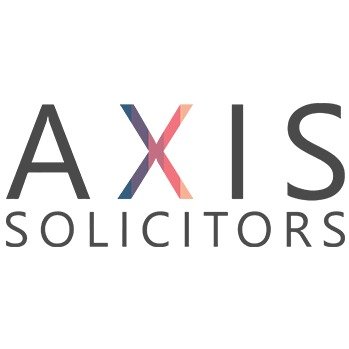Best Personal Injury Lawyers in London
Share your needs with us, get contacted by law firms.
Free. Takes 2 min.
List of the best lawyers in London, United Kingdom
About Personal Injury Law in London, United Kingdom
Personal Injury Law, often known as tort law in the legal world, allows an injured individual to go to civil court and receive a legal remedy (damages) for all losses stemming from an accident or other incident. In London, UK, personal injury laws are outlined and enforced by both statutory and common law. The aim of these laws is to provide legal rights to victims of negligence, allowing them to make a claim for compensation for their injuries and related financial losses.
Why You May Need a Lawyer
Engaging a lawyer may be necessary if you have been injured due to professional malpractice, traffic accidents, accidents at work, or accidents in a public place due to someone else's negligence. Lawyers specialized in personal injury law can guide you through the legal processes, which can be quite complicated for a layman. They can help you understand your rights, evaluate the merits of your claim, gather vital evidence, negotiate with insurance companies, and litigate your claim if necessary.
Local Laws Overview
In London, the statute of limitations for personal injury claims is usually three years from the date of the accident or the date when you discovered your injury. The claimant must prove that the defendant owed them a duty of care, breached the duty of care, and the breach resulted in their injury. Compensation awarded can include damages for pain and suffering, loss of amenities, as well as any financial costs incurred as a result of the injury, such as medical expenses and loss of income.
Frequently Asked Questions
1. Can I claim compensation for emotional distress?
Yes, in London, UK, you may be able to claim for psychological injuries if you can prove they are a result of the accident. This could include conditions such as anxiety, depression, or post-traumatic stress disorder (PTSD).
2. Can I make a claim on behalf of someone else?
Yes, you can make a claim on behalf of a child or someone who lacks the mental capacity to make a claim themselves.
3. What if I partly caused the accident?
Even if you were partly responsible for the accident, you might still be able to claim compensation. This is known as contributory negligence, and your compensation might be reduced according to how much you were at fault.
4. How long does a personal injury claim take?
The duration of a personal injury claim largely depends on the specifics of the case. It might take a few months to a few years. A complicated case might take longer than a more straightforward one.
5. Can I make a personal injury claim if the accident happened at work?
Yes, in London, UK, you have the right to make a personal injury claim if you suffered an accident at work due to your employer's negligence or a co-worker's actions.
Additional Resources
You may seek guidance from local governmental bodies such as the Health and Safety Executive (HSE) or local Citizens Advice Bureaus for general advice. There are also numerous online resources and organizations that might help you understand your rights and the process of making a personal injury claim.
Next Steps
If you need legal assistance with a personal injury, first seek immediate medical attention and ensure that the injury is documented properly. Gather as much evidence as possible from the accident scene. Afterwards, consult a personal injury lawyer who can guide you through the process of making a claim. Do remember that there's a time limit for filing a claim, so it's important to take legal action as soon as possible.
Lawzana helps you find the best lawyers and law firms in London through a curated and pre-screened list of qualified legal professionals. Our platform offers rankings and detailed profiles of attorneys and law firms, allowing you to compare based on practice areas, including Personal Injury, experience, and client feedback.
Each profile includes a description of the firm's areas of practice, client reviews, team members and partners, year of establishment, spoken languages, office locations, contact information, social media presence, and any published articles or resources. Most firms on our platform speak English and are experienced in both local and international legal matters.
Get a quote from top-rated law firms in London, United Kingdom — quickly, securely, and without unnecessary hassle.
Disclaimer:
The information provided on this page is for general informational purposes only and does not constitute legal advice. While we strive to ensure the accuracy and relevance of the content, legal information may change over time, and interpretations of the law can vary. You should always consult with a qualified legal professional for advice specific to your situation.
We disclaim all liability for actions taken or not taken based on the content of this page. If you believe any information is incorrect or outdated, please contact us, and we will review and update it where appropriate.
















